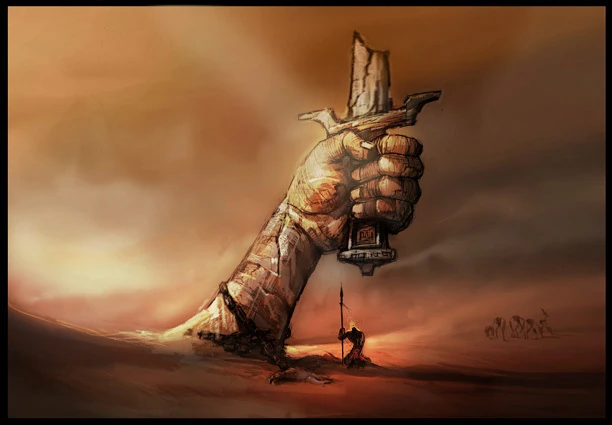Is Grand Strategy Democratic?
Friday, August 9th, 2013[by Mark Safranski – a.k.a. “zen“]

Grand strategy in 1941
A very interesting article at Small Wars Journal by Captain Sean F.X. Barrett, USMC on the state of contemporary grand strategy. Definitely worth the time to read the whole thing:, but I am only going to make meandering comments on a few sections:
The Democratization of Grand Strategy
Calls for a formalized strategic planning process and grand strategy have been mounting for years. However, those sounding these calls erroneously remember a past that rarely if ever existed and overestimate the importance of a formalized process and a final product. Most disconcertingly, they assume that government is necessarily the only supplier of grand strategy, while ignoring that those in government are not incentivized to actually produce it. In fact, the proliferation of communications technology, which provides the means for accessing a wealth of open source intelligence and for disseminating ideas, and the plethora of academics, analysts, and other intellectuals outside of official government communities provide a more effective, democratic, and transparent substitute to the (oftentimes imagined) Project Solariums of the past. The environment in which these intellectuals operate nurtures “real devils,” who vigorously propose policy and strategy alternatives in which they truly believe and have a stake in seeing implemented, resulting in a de facto strategic planning process, whose merits far exceed those of a de jure one.
I think the call for a formal process, or at least an institutionalized forum for “doing grand strategy”, derives from both the lack of incentives correctly noted by Barrett and the frequently piss-poor and astrategic performance of American statesmen after the Soviet collapse. That the resulting criticism, proposals, counter-proposals, debates and domestic politics in drag relating to grand strategy are an alternative, open-source and more effective mechanism than formal planning is an intriguing idea.
Certainly, if a statesman or senior policy adviser have not done hard thinking about geopolitics and grand strategy while in the political wilderness then they won’t do it at all. Once in office, there simply is no time even if the inclination is present. Richard Nixon, who thought very seriously on these matters, as POTUS was militant about having Haldeman carve out undisturbed time for him to continue doing so in a secret “hideaway” office in the EOB. This was highly unusual and difficult even for Nixon to maintain – most presidents and senior officials faced with 18 hour days, 6-7 days a week, simply want to unwind in their off hours, see their loved ones or sleep.
….Furthermore, when formalized strategic planning processes and grand strategy have actually existed, their importance has largely been exaggerated. For example, Richard Immerman debunks some of the myths surrounding Project Solarium, which is often referenced today as a model for grand strategy. In referencing the intelligence that was ostensibly utilized during Project Solarium to guide the formation of grand strategy, he argues that, even though President Eisenhower—whose highest priority was to exploit the full resources of government to formulate a more effective and sustainable national strategy—was welcoming of CIA input, this input had minimal impact on President Eisenhower’s policies or grand strategy.[viii] After such a long time serving in the Army, President Eisenhower had already developed highly formed beliefs about national security, and while intelligence has been perceived as playing a critical role by confirming his beliefs, a lack of confirmation would not have significantly impacted or altered his decisions.[ix] Furthermore, Immerman claims that he has “never been able to locate a scintilla of evidence collected by the CIA and other agencies that changed Eisenhower’s [mind].”[x]
While Barrett is correct that in discerning grand strategy in historical eras it is often reified and exaggerated retrospectively -that is because grand strategy, much like strategy itself, has a deeply iterative character. In facing the Soviet challenge, Project Solarium both responded to and built upon a solid foundation laid by the post-war “wise men“ – NSC-68, Containment policy, the Marshall Plan, the National Security Act, the creation of the CIA , NSC, NATO, the Department of Defense, the Truman Doctrine, the X Article, the Long Telegram, Bretton Woods and stretching back to WWII, the geopolitical vision of The Atlantic Charter, Potsdam and FDR’s Four Freedoms. Project Solarium was not ex nihilo but an effort to improve, shape, refine and surpass what the Eisenhower administration had inherited from it’s Democratic predecessors.
Barrett is also on target when he identifies a strong ideological-political predisposition in formulation of grand strategy. Eisenhower had not only operational/experential preferences but a worldview that he brought with him into the White House and his Secretary of State, John Foster Dulles, had even stronger convictions that, especially in regard to his fierce and almost Calvinistic anti-communism, sometimes render him a caricature today. We have to be careful though in parsing public statements and private assessments. Dulles, despite his hardline reputation, was a sophisticated and highly influential figure in American foreign policy as the senior GOP adviser through most of the 1940’s. Despite talk of “rollback”, neither Dulles nor Eisenhower had any appetite for leaping into Hungary militarily to support the anti-Soviet revolt or supporting the Franco-British-Israeli debacle in the Suez. Still less attractive was the prospect of military intervention in faraway Laos. Grand strategic ideas were applied with realism and prudence by the Eisenhower administration.
….It should come as no surprise that three of the first four members of the 2014 QDR’s “independent” panel are those that self-selected into the DOD and conformed and performed so well as to achieve flag officer rank, including retired Marine Corps Gen. James E. Cartwright, former vice chairman of the Joint Chiefs of Staff; retired Air Force Gen. Gregory S. Martin, former commander of Air Force Materiel Command; and retired Army Lt. Gen. Michael D. Maples, former Defense Intelligence Agency director.[xx] The fourth member, Michele Flournoy, former Undersecretary of Defense for Policy, has been deemed politically palatable enough by both Congress and the Obama Administration, and one must assume the DOD well, since nominations are not made, and consent by Congress not given, without DOD’s at least tacit approval. That we insist on calling this panel independent should be disconcerting enough in itself. The first four members were selected by the Senate Armed Services Committee, Defense Secretary Chuck Hagel will appoint the Chairman and Vice Chairman of the panel, and the other panel appointees will be made by the chair and ranking member of the House Armed Services Committee. This situation is not entirely dissimilar to China under the Ming emperors, wherein the emperors’ concern for stability, obedience, and conformism overlapped with the bureaucracy and their strong aversion to changing the status quo. The imperial literary examination system of Imperial China helped breed this mutually beneficial conformism, and its effects prove quite relevant in this regard. While the examination preserved the cultural unity and political stability of China, it also impeded originality and experimentation.[xxi]
Yes.
Arguably, the period of Ming-Q’ing decline may have been superior in the sense that the Confucian classics and the exams upon which they were based that were the gateway to the mandarinate were at least, an objective and respected yardstick, however ossified and ritualized. All we have by contrast are partisan politics, bureaucratic culture and the increasingly oligarchic client-patron networks within the Beltway and Manhattan..
….President Eisenhower commissioned Project Solarium in part to devise a strategy for coping with a lack of knowledge about the Soviets’ intentions and capabilities. Today, however, more and more strategic intelligence is publicly available. For example, the National Intelligence Council’s[xxiii] new Global Trends series is unclassified. We now arguably suffer not from too little information, but from too much. This has increasingly democratized the arena of grand strategy and enabled more and more even amateur analysts to help process the wealth of information in the public domain and formulate it into alternative visions for the future. One might argue that what these different entities focus on is simply policy or at best strategies for individual instruments of national power. However, even individual policy or strategy analyses might instead be seen as reflections of the overarching principles that they support (and that are often enumerated in the mission statements of many of these think tanks, institutes, and analysis centers), which as Sinnreich contends, are what in fact help form the basis of an enduring grand strategy
Sort of. There are two other ways to look at this picture.
First, that we have an insufficient consensus bordering on ideological schism within the elite as to what America is and is supposed to become that executing foreign policy, much less enunciating a grand strategy, cannot get beyond the lowest common denominators between left and right and bureaucratic autopilot. This in turn causes the cacophony of voices on grand strategy. I partially subscribe to this view.
Secondly, that our elite, whatever their divisions over political passions or personalities have a consensus grand strategy ( or at least, an ethos) for generational and class aggrandizement at the expense of the rest of us and American national interest in a way that the former 20th century governing class called the Eastern Establishment would have neither imagined nor tolerated. The resulting ferment of “bottom-up” grand strategy is a result of increasing divergence of interests between rulers and the ruled and an erosion of the former’s legitimacy as a result of their self-aggrandizing game-rigging , abandonment of the ethic of leadership as stewardship for “ubi est mea” and a deficit of competence that contrasts with their enormously inflated collective sense of self-importance.
I partially subscribe to this one as well.






